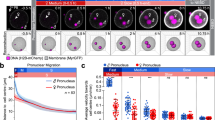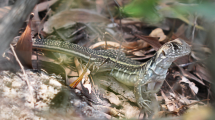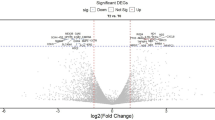Abstract
SINCE Doncaster's preliminary work in 19061, nothing has been recorded on the maturation of the thelytokously parthenogenetic Tenthredinidæ. This author concluded that the chromosome number in the oocyte, polar nuclei and egg pronucleus was 8, and that there were two maturation divisions giving rise to an egg pronucleus and three polar nuclei2. Recent work on the species Pristiphora pallipes Lep., by our colleague, Mr. L. C. Comrie, raises strong doubts regarding Doncaster's interpretations on chromosome number and behaviour, but confirms him regarding the number of maturation divisions and polar nuclei.
This is a preview of subscription content, access via your institution
Access options
Subscribe to this journal
Receive 51 print issues and online access
$199.00 per year
only $3.90 per issue
Buy this article
- Purchase on SpringerLink
- Instant access to full article PDF
Prices may be subject to local taxes which are calculated during checkout
Similar content being viewed by others
References
Doncaster, L., Quart. J. Micro. Soc., 49 (1906). (These species, vide Enslin, Beihefte Deut. Entom. Z., 1918, are: Empria abdominalis F., E. pulverata Retz., Croesus varus Vill., Hemichroa crocea Geoffr.)
Doncaster, L., Quart. J. Micro. Soc., 51 (1907).
Author information
Authors and Affiliations
Rights and permissions
About this article
Cite this article
PEACOCK, A., SANDERSON, A. Maturation in the Thelytokously Parthenogenetic Tenthredinidæ. Nature 140, 240–241 (1937). https://doi.org/10.1038/1402740b0
Issue date:
DOI: https://doi.org/10.1038/1402740b0



